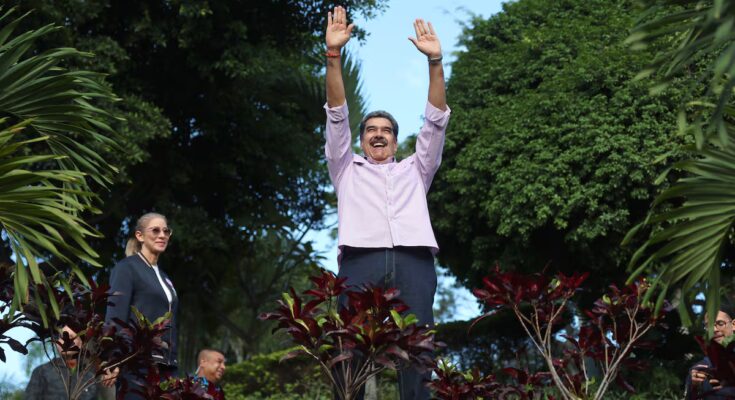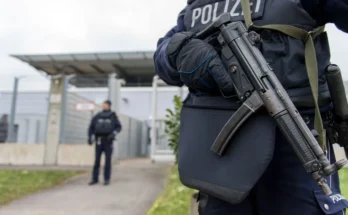The Chavista leadership remains silent following the message from US Defense Secretary Pete Hegseth, which he announced on the social media platform. Details of what the operation, dubbed the “Spear of the South,” will mean for Latin America – and Venezuela in particular – have not yet been released, but it represents another step in the growing US presence in the Caribbean Sea, where the world’s largest warship has just arrived.
Venezuelan President Nicolás Maduro spoke on Thursday, but before the announcement. In his statement, the Chavista leader denounced the United States for “persecuting” young Venezuelan migrants while “threatening Venezuela with an invasion.” He called for reconciliation and argued that Americans and Venezuelans should “unite for peace on the continent.”
Maduro, who declared the maximum level of alert in the Armed Forces, asked the President of the United States, Donald Trump, “no more endless wars, no more unjust wars, no more Libya, no more Afghanistan”. And he repeated several times in rudimentary English: “Yes, peace.”
A day before Hegseth’s announcement, Venezuelan opposition leader María Corina Machado declared that “decisive hours” were approaching in the country and prophesied “a crucial change.” Speaking in a virtual forum of former Ibero-American presidents of the IDEA Group, Machado announced, before supporting the reconstruction of a “devastated country”: “The days that await us are very difficult. But we are no longer afraid of what others believe to be impossible.”
Machado, the so-called “Iron Lady” of the most intransigent anti-Chavista currents and 2025 Nobel Peace Prize winner, assured that the country is “on the threshold of freedom” and guaranteed that the transition to democracy planned by Venezuela “will be peaceful”.
While the Venezuelan opposition leader predicted (as she has on other occasions) crucial moments for her country, the US airline Gerard Ford they deployed alongside dozens of military aircraft and ships already present in the Caribbean region in Trump’s declared war against drug trafficking, a campaign that has the underlying goal of removing Maduro from power.
Some political observers inside and outside Venezuela, particularly on social media, issue periodic warnings about the importance of not underestimating the ability of Chavismo – a political movement that calls itself “a force” and continues to have clear influence among the military – to generate general or partial conflict in Venezuela in the event of foreign aggression.
The U.S. military may be incomparably larger than Venezuela’s, but Chavismo can retreat and organize guerrilla fronts, or conquer entire swaths of the country and foment chaos with guerrilla-inspired variants of terrorism.
According to this view, it would be a mistake to assume that US intervention would produce the “domino effect” that some imagine.
By contrast, many Venezuelans abroad tend to think, as Machado’s speech suggested, that no one will come out in force to defend Nicolás Maduro – a leader with little popular appeal, but based on strong military support – if a foreign force intervenes to disrupt his mandate, especially after allegations of fraud in last year’s presidential election.
Among the majority of the opposition, who have enormous trust in Machado’s word, the possibility of uncontrolled violence in the event of Maduro’s fall is rejected. There are doubts about his ability to mobilize support, and also about the loyalty of his military leadership should he face a decisive moment that opens the door to democracy.
In general, within the Democratic camp, there is a widespread feeling that no American operation in the country would last too long.
Donald Trump’s intentions, in any case, remain unclear. Despite the military escalation, the US president has shown caution regarding intervention in Venezuela: the chances that a military incursion will cause bloodshed on both sides and that the undeclared goal of overthrowing Maduro will not be achieved are high. According to US media, Trump’s team presented him with several options for action that go beyond attacks on suspected drug-trafficking vessels in the Pacific. They range from air strikes to the direct removal of the Chavista leader. According to CNN, Trump continues to weigh the risks and benefits of launching a broader military campaign.
Sign up to our weekly newsletter to get more English-language news coverage from EL PAÍS USA Edition



